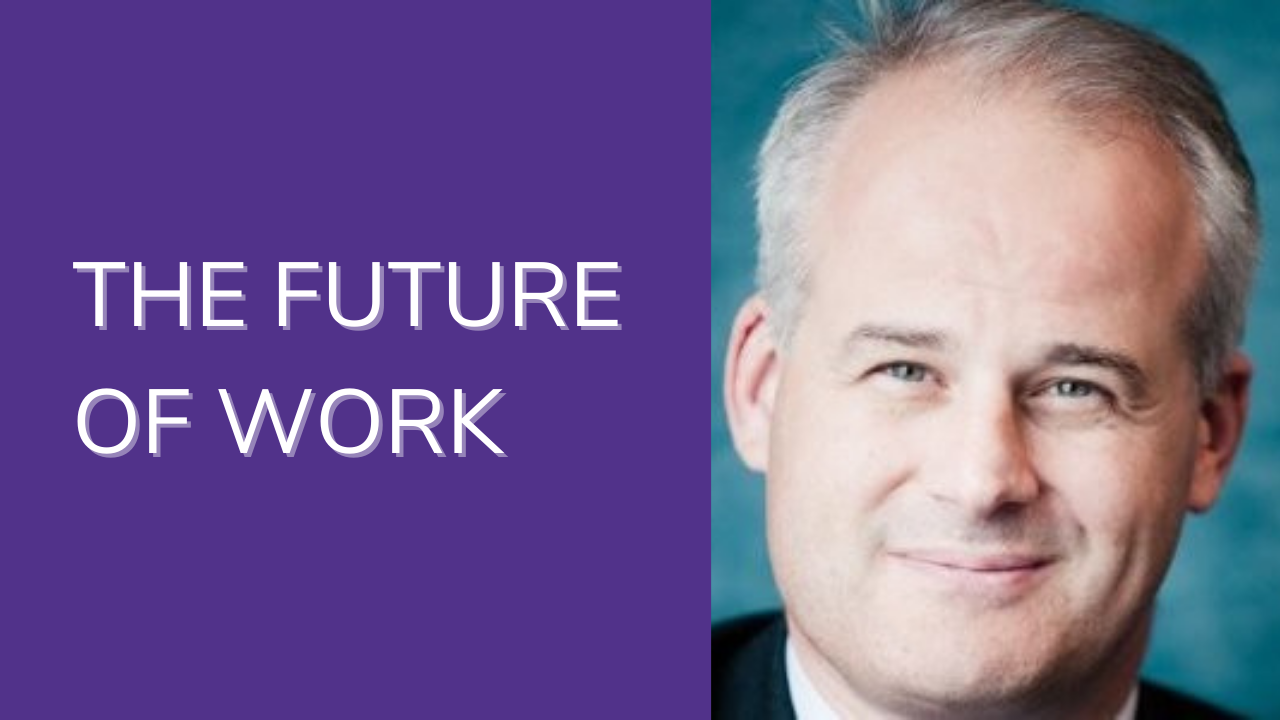Discover how Zoom is helping provide a frictionless video environment for many of the world’s leading companies. Zoom is committed to changing the way enterprises and the world connect and communicate.
What do you see as the future of work?
I see the future of work to really expand on our experience of the past few decades where technology is clearly given company’s competitive advantage through intelligent use of technology, the desktop and at home. Clearly at the pandemic, a whole series of extra opportunities have been grasped by companies through necessity. I think that all of Zoom’s clients and realise that work is not going to be as it is now, when we’re all at home and forced to be at home. Nor is it going to be as it was, when everyone kind of goes into the office to do email, it’s going to be different. Customers will take the opportunity to be working remotely, your staff will take the opportunity to work remotely. This will create a very different hybrid environment.
What have we learned about work during the pandemic?
I think companies and staff have learned a large number of things during the pandemic, you can be very productive working remotely. When given trust, employees really thrive. The whole pandemic forced colleagues to trust each other more, and do the work that they needed to do from different spaces in non-traditional ways. That led to very significant productivity increases, as people worked when it suited them, around their lives. So they were able to juggle more, they were given more choices, and they use those choices, not only for their own interests, but for the company’s interest. So, I think what many supervisors bosses and managers realised was that the old bias that ‘I have to see people in the office working’ – that bias actually just wasn’t true, your people would work well, and you can trust them. Clearly, there will be situations where it doesn’t work, because there’s never 100% answer to any of these things. But I think in general, give trust and people will thrive. The other thing that I think we learned is that it’s quite difficult when you work remotely to put boundaries around work. As a consequence, people had to learn new ways to make sure that they didn’t become too tired, they didn’t actually throw themselves, you know, into work at inappropriate moments for them. I mean, it’s all very well to have an office up and running in your house. But the last thing you want to do, and you know what, when you get up in the middle of the night, you suddenly see a blinking light and you think that I’ll go do some work, you know, that’s not good for you. Also using calendaring and techniques to make sure that you’re not wearing yourself out during the day and that you’re taking suitable breaks. I think that people learn that they need to manage their remote work environment in a way that’s different from managing it in the workplace. So those are two really important lessons, some of them for employers, and some of them for the people who were at home.
How best do you think companies can combine remote and office working?
So I have many views about combining on site work with remote work, I think that it’s a set of disciplines that we’re all going to learn a lot about over the next few years. Clearly organisations will perfect it for their own cultures and it might be slightly different between organisations. When I when I listen to those that are forging forward the most quickly, many see the offices becoming more of an event space than it is for the place to go and do your email, or to create a document, or to do something that can clearly be done in any location. But events, that might be simply on a Wednesday we have a team meeting, you come in for the team meeting, as a consequence, we also have a lunch together and then there are opportunities to do other things. That is the single day that you are required into the office in order to participate in that event. Or, for example, we have a company event monthly or you know those sorts of things around which a calendar can be based and then you have flexibility. I think there are quite a few items of company culture around trying to ensure that those in an office and those remote, have a similar work experience at meetings for example. A good idea that I heard from one zoom client was that they were insisting that anyone who led a meeting, if there were remote people joining the meeting, what they advocated as a guideline, rather than a strict rule was that the meeting leader joined the meeting remotely, to make sure that those who were remote actually had a great experience, and that there wasn’t a temptation, that the meeting was somehow being run in the room differently to online. I think that’s a really intelligent adaptation of the sorts of business practices that we all kind of grow to learn. I mean, clearly, meetings are great when you know what the meeting intended outcome is, why all the participants are there, and what the agenda is to produce that outcome. Those rules still apply in a virtual meeting, as much as they ever applied in a normal meeting. So, I think that people are going to learn a lot about the combination of culture process and technology to make their hybrid work practices really work for their company. But what’s clear, though, is that you really need the technology in a room situation, to mirror the technology that your employees are used to using at home.
How do you think Zoom is changing how we work?
I think the role that Zoom has played in changing how we work is that finally, people have found a service that just worked for video conferencing, and they’ve discovered Zoom met their needs to continue their work, their social activity, their education during the pandemic. It was a big switch that flicked in people’s heads – there is something that is different, I can operate in a different way. We’ve even seen Prince Charles say that he wants to continue to use Zoom more in what he does. I think that, as a consequence of people realising now, that actually there’s a different way of working, they will continue to use services like Zoom for situations or for their life to make it easier for them to make sure that they can manage work around life rather than life around work. I think that’s the important enabling factor of something like Zoom. Now clearly, the reason people love Zoom is that it’s so innovative, it works on every device, they can use it at home, they can use it at work, they can be on a mobile, or they can be on a desktop or laptop, and they get seamless communication with their colleagues. I think people will expect to see Zoom as the market leader continued to innovate, to support their use cases that they’ll discover, as we start doing hybrid in a clear was. A great one of those is smart galleries where people in a room are detected by AI and are presented in the meeting as the same size as the remote participants rather than having a big wide camera with tiny little specks of people in a room.

Magnus Falk
CIO Advisor
Zoom
Magnus spent nearly 20 years with Credit Suisse in varied roles from project manager to CIO, across many disciplines: technology, derivatives, operations, finance. Magnus is now helping businesses take advantage of the “everything as a service” era.



